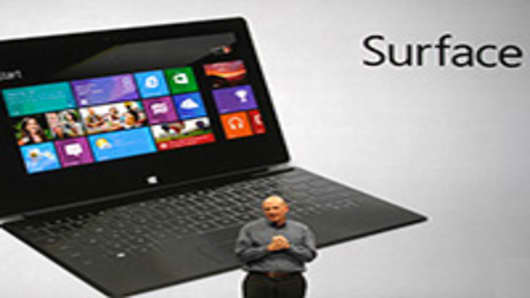And then there's the connection to Microsoft's entertainment offerings, which millions of people have encountered through the Xbox Live service. Windows 8 tablets and PCs tap directly into that. If you're an avid Xbox user, this is as valuable as iTunes. If not, it's an entertainment tile on the desktop that doesn't do much.
So what should we take away from Microsoft's decision to charge $499 and up for Surface?
First, it's a bet on software rather than hardware. For the same money, Apple has a higher-resolution screen with better color saturation. But what Apple doesn't have is the most comprehensive productivity suite on the planet, hands down.
My concern with Microsoft's decision here is that Office might not be the essential product on mobile that it was on the desktop, partly because it has been a non-factor on the biggest mobile platforms for so long.
The techie early adopters who value Office may have already bought iPads and figured out how to do without it for now; a new tablet with Office preloaded might not change the game for them.
Second, it's a bet that a strategy that failed for Hewlett-Packard, Motorola and Samsung more than a year ago will work now—namely, challenge the iPad head-on.
In the months after the first iPad launched in 2010, those rivals tried offering tablets at the same price as the iPad (or a little more) and failed miserably. Since then, a new wave of rivals has tried a different approach: Amazon , Barnes & Noble and Google have launched tablets starting at $199 that make zero profit up front, but try to make it up later by selling books, movies, ads and more.
It's far to read Surface's debut as Microsoft CEO Steve Ballmer's declaration that he's not interested in playing the no-profit hardware game. Instead, he's going to take on Samsung and Apple at $500 and over. Win or lose, it's probably going to be a long fight.
email: tech@cnbc.com



